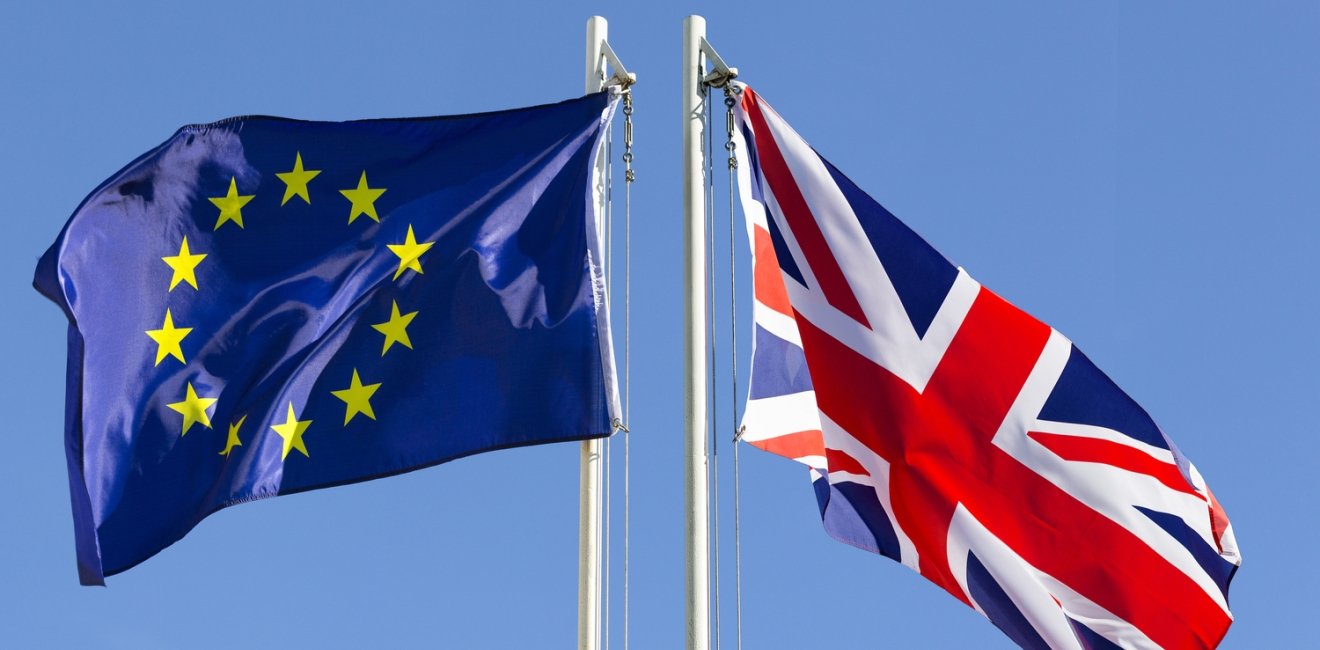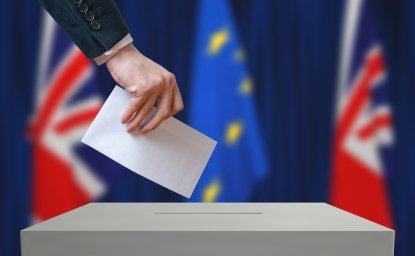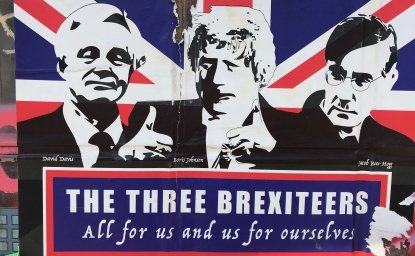BREXIT: Tug of War or Revolution
British people remain deeply divided over the decision to withdraw from the European Union as Theresa May struggles to get her withdrawal agreement passed by Parliament.
British people remain deeply divided over the decision to withdraw from the European Union as Theresa May struggles to get her withdrawal agreement passed by Parliament.

On March 29, 2019, the day originally slated for a United Kingdom departure from the European Union, Parliament rejected for a third time the Prime Minister’s Withdrawal Agreement. Based upon the decision reached among the 27 European leaders last week, Britain will now leave the EU on Friday April 12. Unless a major political change takes place, the Europeans will kick the Brits out with placards saying “Good riddance.” However, within the British Isles deep divisions exist and their origin merits examination. Two groups have moved beyond jaw jaw to mobilizing and marching. Can the underlying passions of each side be reconciled?
Remainers recognize that Europe is the principal trading partner. In 2017, the United Kingdom exported to the European Union GBP 274 billion, or 44 percent of all UK exports and imported from the EU GBP 341 billion or 53 percent of all UK imports. In November 2018, trade in services with the EU amounted to GPB 83 billion, helping to outweigh the 42 billion trade deficit in goods. Throughout the 45 years of EU membership, British manufacturers, farmers and financial service people have enjoyed robust growth in commerce with the European Union.
Exiters believe that the UK can do better on its own, untied from EU regulations and Court of Justice decisions. They recall the freedom of the British Empire and its successor, the Commonwealth. They insist that independently, the British government can negotiate Free Trade Agreements with the United States, Canada and India. Indeed, the government has made preliminary moves in that direction awaiting the end of the EU harness.
For the most part, the young seek to remain and the elderly retain their memories of a more glorious past.
The referendum of June 2016 produced a 52:48 percent decision to withdraw from the EU. The remainers relied on reason and warned of bitter medicine should voters reject their rationale for staying within the single market. The exiters appealed to passions against foreigners and EU bureaucracy. In the ensuing year, citizens came to realize that both sides had failed to be fully honest and had raised false bogeymen to gain votes. Two years later, the arguments have not gone away, although many exiters now recognize the economic consequences of withdrawal. However, the hardcore remain determined to ‘rescue Britain’ from the clutches of Europe. They reject the ability of Europeans from the 27 countries to work within the UK, even though Britain alone cannot meet its human resource needs in agriculture and nursing.
The divisions are tribal with the Scottish insisting that their future remains in Europe and the Welsh seeking alternatives outside Europe. The Northern Irish are divided with many enjoying the relative peace and end of ‘the troubles’ that freedoms to travel, live, live and work on either side of their land border with the Republic of Ireland have given them. For the most part, the young seek to remain and the elderly retain their memories of a more glorious past.
Nevertheless, both sides coalesce in their contempt for national politicians and Parliament. They see stooges maneuvering for greater power within their respective political parties, not men and women elected to achieve the national good. The BREXIT debate has sucked all the fresh air from parliamentarians sent to Westminster to improve the health care system, protect fisheries and repair roads and bridges. People are angry and have taken to marching upon London. Families and friends avoid gatherings to duck disputes over BREXIT. The favorite British epithet, “bloody” is attached to most discussions for or against parliamentarians at Westminster. Today, the 18th century model of western democracy is considered to be nothing more than a barnyard.
So how do the British emerge from this chaos? The UK has 650 MPs who have become the butt of people’s anger. Recognizing this, they have decided to take control of the parliamentary process. They do not have much time. A decision must be reached by April 12, a fortnight beyond the original exit from the EU date of March 29, 2019. (Friday April 12 is the last date by which legal preparations for European Parliamentary elections can be made.) In this briefest of time, Prime Minister Theresa May will make one last effort to get her Withdrawal Agreement Act passed through Parliament. Meantime MPs have decided to select alternative arrangements with the EU, through ‘indicative votes.’ They will chose from among 8 options, ranging from a no-deal BREXIT to membership of the EU’s single market, a customs union, and a second referendum. Sir Oliver Letwin, the Conservative MP who ushered in this move to take control of the parliamentary agenda said the votes on the options should indicate “where the numbers are and which propositions stand a chance of getting a majority.” In normal times a parliamentary democracy requires the approval of the Prime Minister, but she has not indicated support for the outcome of the ‘indicative vote’. The third rejection of the Withdrawal Agreement confirmed that PM Theresa May has lost the ability to govern. Gone is the respect of her own backbenchers and Cabinet members. Increasingly alone, she has offered to resign should Parliament pass her Withdrawal Agreement Act so that another leader may proceed to negotiate the future relationship with the EU after withdrawal. With the rejection of her agreement, will she stay on to seek a further extension of time from the EU leaders, or fold and handover to the hardcore Exiters?
I argue that Britain needs a leader who will genuinely consult with the other side, will listen to alternative points of view and then persuade the nation that a way forward exists which can gain majority support. That needs time. It cannot be accomplished by April 12 or May 22, the second extension date given to the British people. To achieve this consultation, Parliament needs to withdraw the Article 50 letter by which it announced the UK intention to withdraw from the EU and spend one or two years discussing a way forward. The European Court of Justice has acknowledged the right to pull back a Article 50 letter and given the British people the opportunity to lower the antagonism and return to the pragmatism which best characterizes these island people, of which I am one. Consensus can be found, but it needs time and a genuine leader.


The Global Europe Program is focused on Europe’s capabilities, and how it engages on critical global issues. We investigate European approaches to critical global issues. We examine Europe’s relations with Russia and Eurasia, China and the Indo-Pacific, the Middle East and Africa. Our initiatives include “Ukraine in Europe”—an examination of what it will take to make Ukraine’s European future a reality. But we also examine the role of NATO, the European Union and the OSCE, Europe’s energy security, transatlantic trade disputes, and challenges to democracy. The Global Europe Program’s staff, scholars-in-residence, and Global Fellows participate in seminars, policy study groups, and international conferences to provide analytical recommendations to policy makers and the media. Read more



